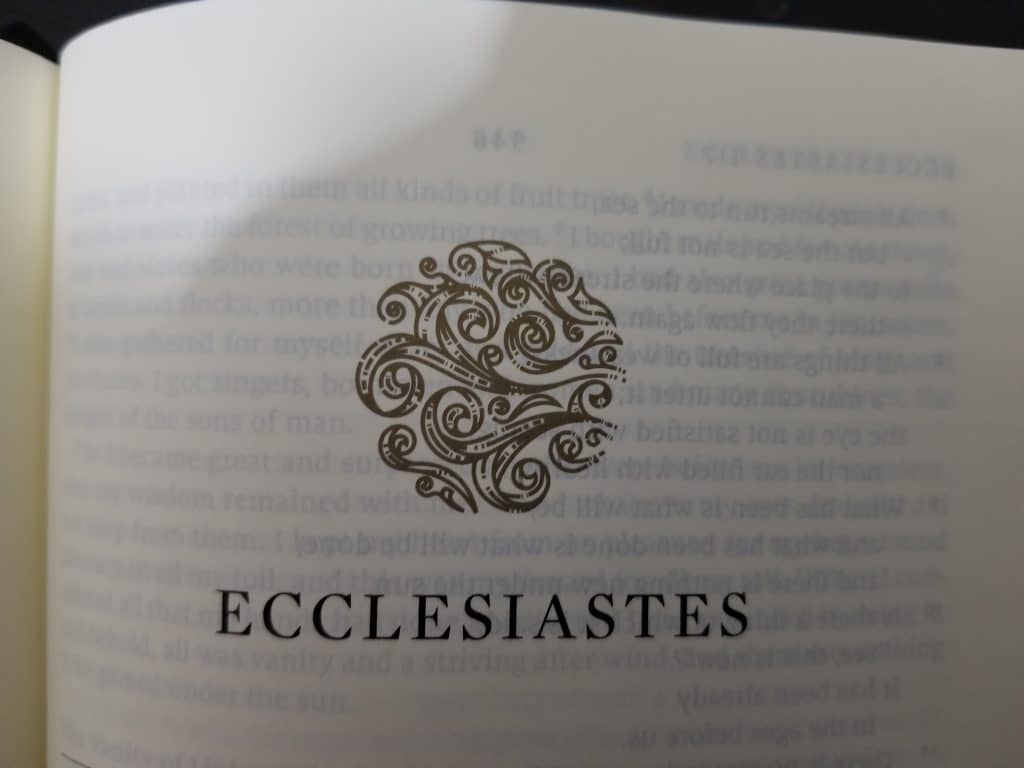⏱️ Estimated Reading Time: 6 min read
It is always amazing to ponder the timeliness of the Bible. Though it was written thousands of years ago in a language foreign to most people who read it today, it speaks to modern day issues with precision and clarity. This is no less true of the text at hand in the book of Ecclesiastes. We live in a culture that promises money, power, and possessions will bring lasting pleasure. Every day we are sold the lie that the latest product or experience will make us happy. However, this could not be further from the truth. Most people who achieve success in this life are typically not happy, or at least not happy for long. This is what Ecclesiastes speaks to in general and specifically what King Solomon, the ultimate pleasure seeker describes in Ecclesiastes 2:1-11.
Solomon experiments with several types of pleasure to see if they will bring lasting fulfillment, saying “I said in my heart, ‘Come now, I will test you with pleasure; enjoy yourself’” (Ecclesiastes 2:1, ESV). In the end, however, he describes each one as a disappointment say, “this also was vanity”. First, he seeks pleasure in laughter, or “frivolous merrymaking” (NET Bible). A modern nomenclature for this would be “painting the town.” It connotes wasting large amounts of time in pointless amusement, which in the end only distracts from the weighty responsibilities of life. Neil Postman referred to this as “amusing ourselves to death” in his book by the same title. One of the oldest temptations is amusement. Westerners spend large amounts of time being entertained in some way. In the end, however, Solomon determined that this type of lifestyle was madness and a waste of time (Ecclesiastes 2:2). Laughter and having fun can be good medicine for the soul and help us to rest. It should not, however, be seen as the ultimate remedy for soul satisfaction.
Next, Solomon sought pleasure in alcoholic beverages. For sure, in the modern American Christian context, there is disagreement as to the wisdom of abstinence versus the freedom to partake in beverage alcohol. The Bible speaks to the sinfulness of drunkenness but leaves room for freedom to partake of beverage alcohol in moderation only, which isn’t license to drink excessively. This is not, however, the point of the text at hand. Solomon turned to wine to cheer his body. He even points out that during his experiment, he was being guided by wisdom, which indicates that he may not have simply wanted to get drunk. Yet, it did not deliver. The pleasure that he derived from consumption didn’t last. It left him wanting and forced him to continue his search for fulfillment in some other type of pleasure.
Solomon then through himself into his work in order to find fulfillment. He “made great works…built houses and planted vineyards…[made] gardens and parks, and planted in them all kinds of fruit trees” (Ecclesiastes 2:4-5, ESV). Work is good gift from the Lord established before the Fall as a way to “be fruitful and multiply and fill the earth and subdue it” (Genesis 1:28). Yet, when work is placed as the ultimate, it becomes an idol instead of a way to worship God. Hard work, then allowed Solomon to accumulate great wealth and possessions. He bought slaves to help him work the gardens and vineyards he had built. He amassed flocks and herds, “more than any who had been before [him] in Jerusalem” (Ecclesiastes 2:7). He did not, however, find fulfillment in his work or possessions and turned to physical pleasure.
He then sought fulfillment in sexual freedom. He amassed a large harem and admitted that “whatever my eyes desired I did not keep from them. I kept my heart from no pleasure” (Ecclesiastes 2:10). According to 1 Kings 11, Solomon 700 wives and 300 concubines! He experienced sexual pleasure almost endlessly, yet, it did not bring fulfillment. One wife was not enough, he had to go through more than one thousand and was still left wanting. This is the same trap that so many people fall into today though they may not have sexual encounters with one thousand women, men today can have a larger harem than Solomon through the internet. Not much has changed.
Solomon was arguably the greatest king in Israel’s history. He was famous in the ancient Near East, hosting foreign monarchs who marveled at his kingdom (1 Kings 10:1). Yet, for all his power and possessions, he determined that it was “vanity and a striving after wind, and there was nothing to be gained under the sun” (Ecclesiastes 2:11). When we seek anything else in this world as the source of our pleasure, we pervert what God has provided as a good gift and make it an idol. Danny and Jonathan Akin word it well when they write, “pleasure is a good thing that if turned into a god thing becomes an enslaving thing” (Christ-Centered Exposition: Ecclesiastes). Pleasure is not inherently bad, however, we must seek our pleasure ultimately in knowing and being known by Jesus.
Ecclesiastes is a timely book for believers who are tempted by the American dream. Despite what is propagated on television, social media, or prosperity preachers, we are not meant to live our best lives now. For the Christian, the best life is yet to come. This does not mean that we cannot enjoy this life. It just means that we are not to put all our hopes in this life. Money and possessions are fleeting, but the kingdom of heaven will not pass away. In the Sermon on the Mount, Jesus said it this way “Do not lay up for yourselves treasures on earth, where moth and rust destroy and where thieves break in and steal, but lay up for yourselves treasures in heaven, where neither moth or rust destroys and where thieves do not break in and steal. For where your treasure is, there your heart will be also” (Matthew 6:19-21, ESV emphasis added). Solomon was ultimately looking for Jesus, for only he can bring joy and fulfillment both “under the sun” and for eternity.




